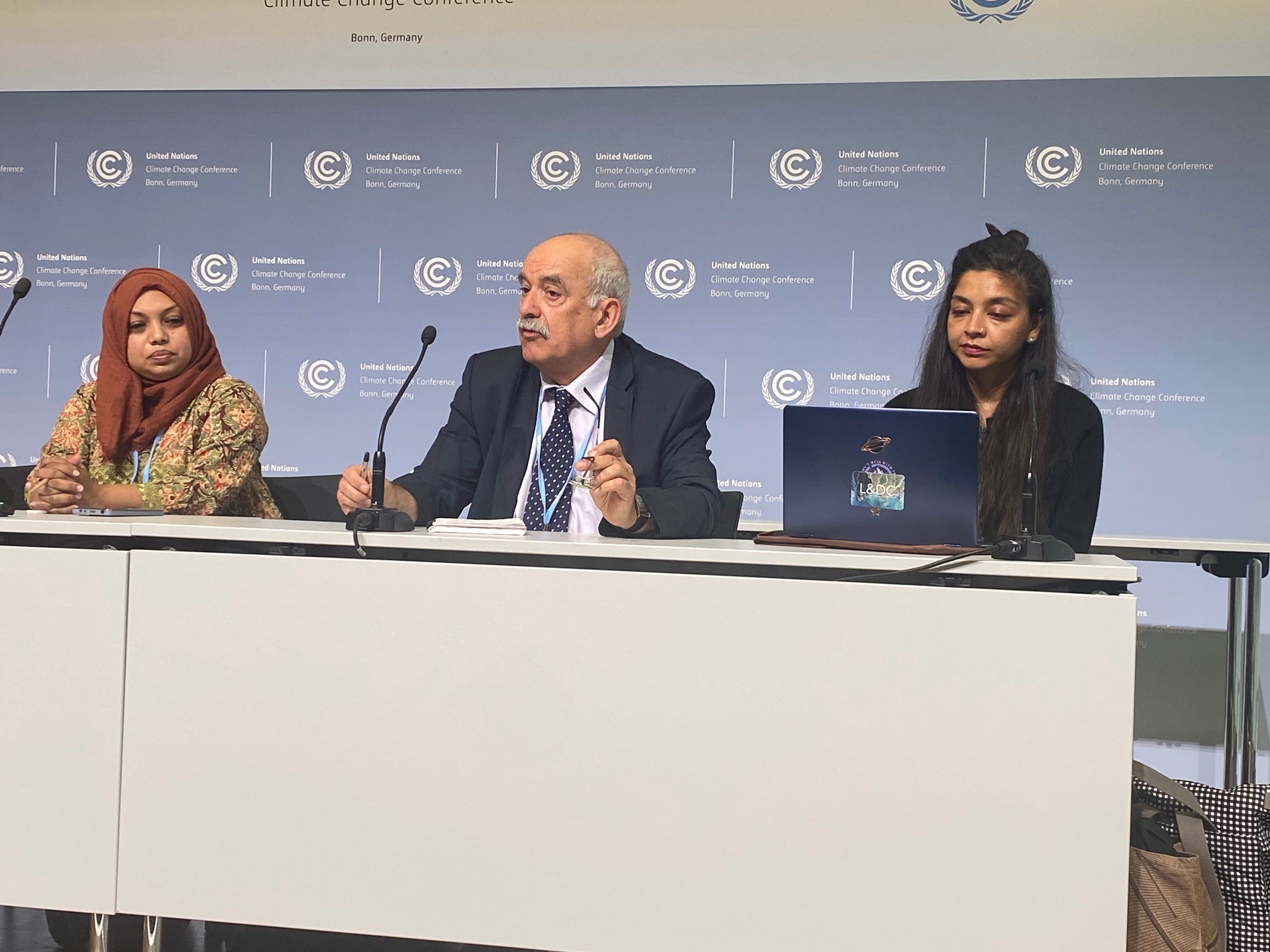Islamic Relief’s Senior Policy Advisor for Poverty Reduction, Jamie Williams, has penned his latest blog from the United Nations Climate Change Conference in Bonn, Germany.
Islamic Relief has been leading the charge to ensure that help reaches the victims of loss and damage due to extreme weather events caused by climate change.
We all understand that this involves funding to rebuild and recover devastated economies. For instance, after the massive floods in Pakistan in 2022, we estimated the damage at a minimum of $30 billion (£23 billion) in infrastructure and economic losses. This disaster affected 33 million people, submerged a third of the country, killed 1,700 people, and displaced 7.9 million from their homes.
But here at the Climate Conference in Bonn, we’re also talking about another kind of impact that’s harder to measure in money: non-economic loss and damage. This includes the loss of life and physical and mental health, cultural heritage, identity, social cohesion, and the irreversible damage to nature and the environment.
You can’t put a price tag on human suffering, anxiety, stress, and trauma from climate events. Just because you can’t see it or calculate it doesn’t make it any less important.
How can this loss and damage be addressed?
Islamic Relief along with other faith actors provided some answers at the conference.
We can help local communities document and record their non-economic losses, using their insights into cultural heritage, traditional knowledge, biodiversity, and social cohesion.
We can support the preservation of cultural and spiritual practices, capture Indigenous knowledge, and help restore places of worship, conduct community rituals, and preserve religious traditions.
We’re in a great position to offer psychological and emotional support, such as grief counselling, trauma support, and community healing programmes. We can also set up support groups for people to share their experiences and heal together
We can strengthen social bonds through community gatherings, festivals, and cultural events, and help rebuild social networks and foster a sense of belonging.
We can advocate for policies that recognize and address non-economic losses, ensuring they include everyone, especially the most marginalized and vulnerable. Here in Bonn, we’re pushing for international support and funding to tackle these issues.
We emphasise the ethical and moral duty to address non-economic loss and damage within faith communities. Islamic Relief can exercise its core values of compassion, social justice, and stewardship, supporting communities’ cultural, spiritual, and social needs to foster resilience, healing, and sustainable recovery from the intangible impacts of the climate crisis.
If you want to help Islamic Relief with this important work, donate here.
Featured image photo credit: Henrik Grape, Interfaith Liaison Committee


